Life

Educators and Parents, Sign Up for The Cheat Sheet
Weekly updates to help you use Science News Explores in the learning environment
Thank you for signing up!
There was a problem signing you up.
-
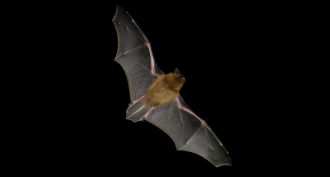 Animals
AnimalsBats in the attic prompt boys to create a better bat detector
When a teen learned he had 700 bats in his attic, he decided to develop a better bat detector.
-
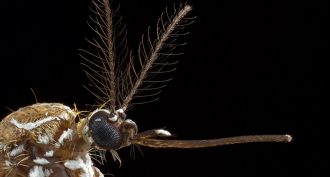 Health & Medicine
Health & MedicineGeneticists get closer to knowing how mosquitoes sniff out our sweat
Scientists have found that a protein in the antennae of some mosquitoes detects a chemical in human sweat.
By Susan Milius -
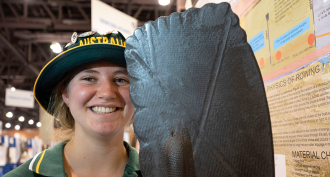 Animals
AnimalsBumpy edges could be key to record-breaking oars
Inspired by the bumpy edges of flippers on a humpback whale, an Australian teen has redesigned oars for use by competitive rowers.
By Sid Perkins -
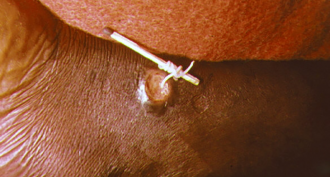 Animals
AnimalsScientists Say: Guinea worm
Scientists and health care workers are working to eradicate this parasite, which causes a painful condition called Guinea worm disease.
-
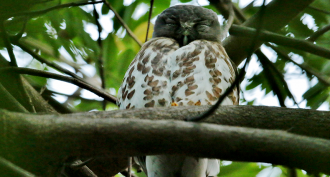 Animals
AnimalsTwo teens pull DNA from birds out of the air
Animals shed DNA into their environment. Usually scientists find it in water or soil. Now, two teens have figured out how to capture this “environmental DNA” from air.
-
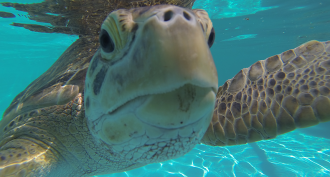 Animals
AnimalsTeen designs belt to hold down a sea turtle’s bubble butt
Sea turtles hit by boats can develop an injury called “bubble butt syndrome.” One teen invented a vest to help them dive again.
-
 Plants
PlantsNeed a little luck? Here’s how to grow your own
A 2019 Intel ISEF finalist used a plant hormone and extra fertilizer to boost the numbers of multi-leafed clovers — including lucky four-leafed plants — she could reliably grow.
By Sid Perkins -
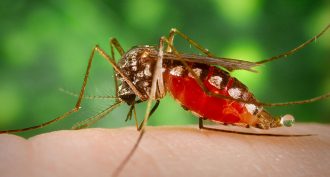 Health & Medicine
Health & MedicineTesting mosquito pee could help track disease spread
A new way to monitor the viruses that wild mosquitoes have picked up passes its first outdoor test. The method uses mosquito urine.
By Susan Milius -
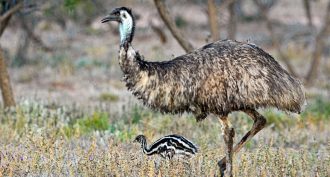 Life
LifeHow some birds lost the ability to fly
Some birds have evolved to stay on the ground instead of flying. Scientists think changes to bossy bits of DNA might be the reason.
-
 Genetics
GeneticsScientists Say: Genealogy
This is the study of someone’s ancestry. It could mean finding out about someone’s family tree or the history of evolution from one species to another.
-
 Animals
AnimalsYes, cats know their own names
Cats can tell their names apart from other spoken words. A new study supports what cat owners the world over had suspected.
-
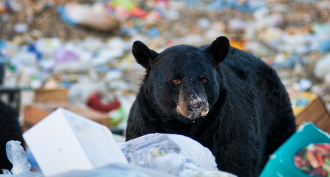 Animals
AnimalsBears that eat human ‘junk food’ may hibernate less
Wild black bears snacking on leftovers of sugary, highly processed foods show possible signs of faster cellular wear.
By Susan Milius